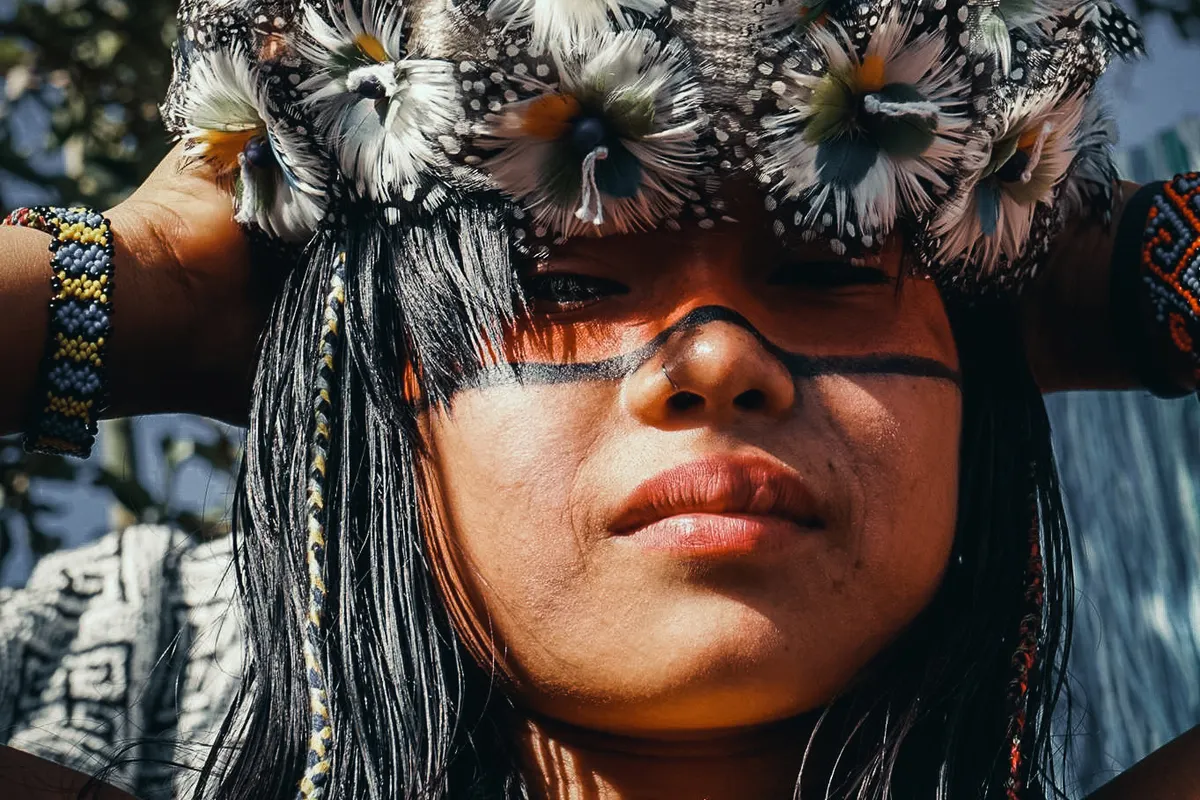*This article originally appeared in DoubleBlind Issue 9, published in June 2023
Rita Huni Kuin doesn’t know how long her village—and the other Huni Kuin villages surrounding it—have been patriarchal. No one, including her elders, seems to know either. It is a common belief, however, among the Huni Kuin, an indigenous group in the Brazilian and Peruvian Amazon, that work was done more collectively among men and women prior to colonization during the rubber boom at the turn of the 19th century. For as long as Rita, 29, and her elders remember, though, the women in her village, Aldeia Chico Curumim, located in the Terra Indígena Alto Jordão Indigenous Territory in Brazil, have not had a voice politically or been recognized internationally for their contributions to the preservation of Huni Kuin culture. Huni Kuin men have traveled around the world, serving plant medicine, speaking on behalf of their communities, and selling glass bead necklaces and weavings made by the women for decades, but oftentimes the female makers of these crafts were not credited or compensated equitably—until now.
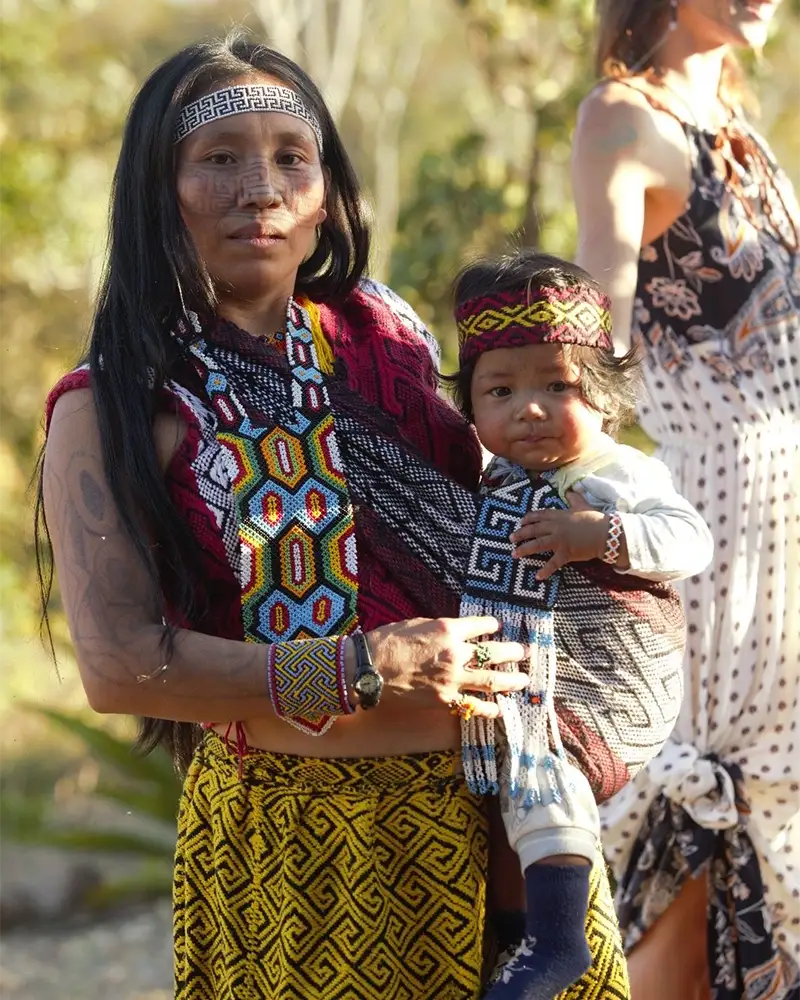
At the beginning of 2022, women across 36 Huni Kuin villages along the Rio Jordão and Alto Tarauacá rivers in Brazil formed the first association intended to give them a voice, locally and globally. The association, named Ainbu Dayá or “the work of women” in Hatxã Kuin, the indigenous language of the Huni Kuin, was established with the support of Living Gaia Association, a nonprofit NGO that was founded in 2013 by Alexandra Schwarz-Schilling, a German entrepreneur and coach who was inspired by the Huni Kuin and her transformative plant medicine experiences.
“Until recently, [the women] were doing a great job of bringing our culture forward, but we didn’t have the visibility, it was only the men,” says Rita, from her home in Jordão, a small city and the capital of the municipality of Jordão. Rita, secretary of Ainbu Dayá, speaks over WhatsApp video chat, while her daughter runs in and out of the screen. She’s wearing long, traditional Huni Kuin red feather earrings, paired with wide gold hipster frames.
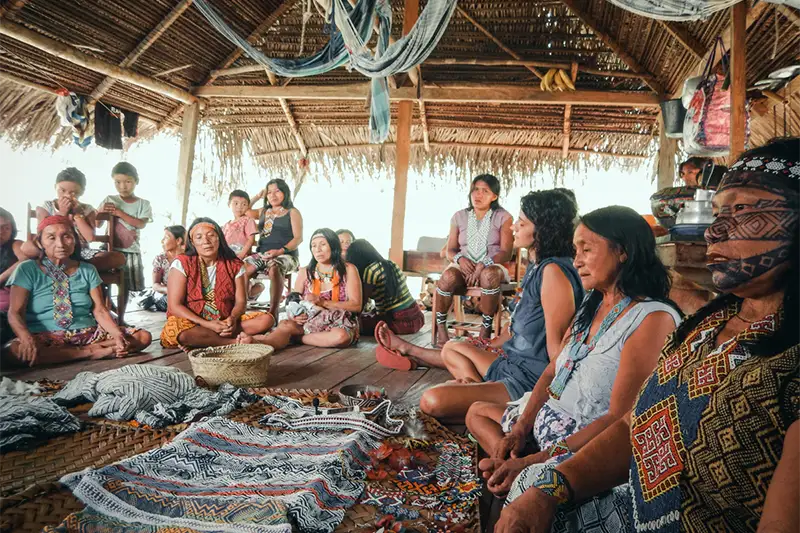
One of the most important parts of the association, she says, is that it’s “strengthening the bonds between the older and younger generations so the old can learn from the young and the young can learn from the old.” For example, Rita says, younger women like her can teach the older women how to use technology and tell them what’s going on in the cities. The older women can teach her and the younger generation about the traditions and crafts of their people in the spirit of preservation.
Rita says it’s also important for the women to have a voice because “men don’t have the same vision of what the Huni Kuin society as a whole needs for the future and future generations.” One example includes the need for better medical care for pregnant women and newborns in the villages.
The women consider this association a significant step forward, but there’s also a long way to go. “We’re still in the beginning of this process where the women can travel and be spokespeople as well, Rita is one of the first,” says Simon Knoop, project manager of Living Gaia.
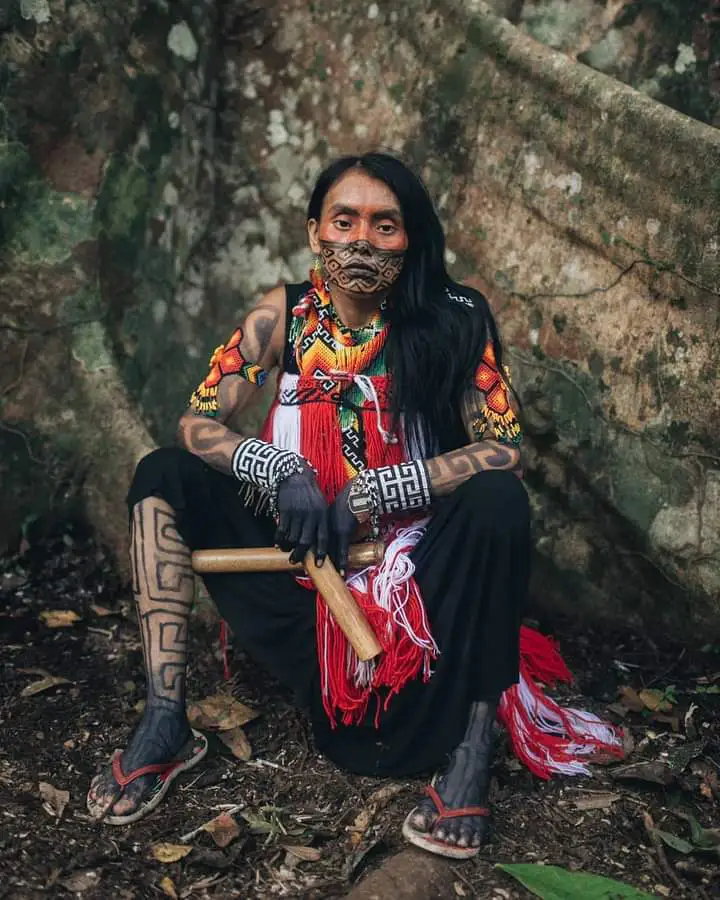
In April, Ainbu Dayá had their first assembly where all the women from the villages were invited. The vision is for the six women in leadership positions, including Rita, to continue meeting once per month and for the association to hold this gathering for all the women annually. There’s only about 4000 Huni Kuin across these 36 villages in the state of Acre in the Brazilian Amazon. It’s unknown how many Huni Kuin villages there are in total and where they’re all located as the Huni Kuin are still semi-nomadic. But the vision is, eventually, to broaden future assemblies by also inviting neighboring indigenous groups.
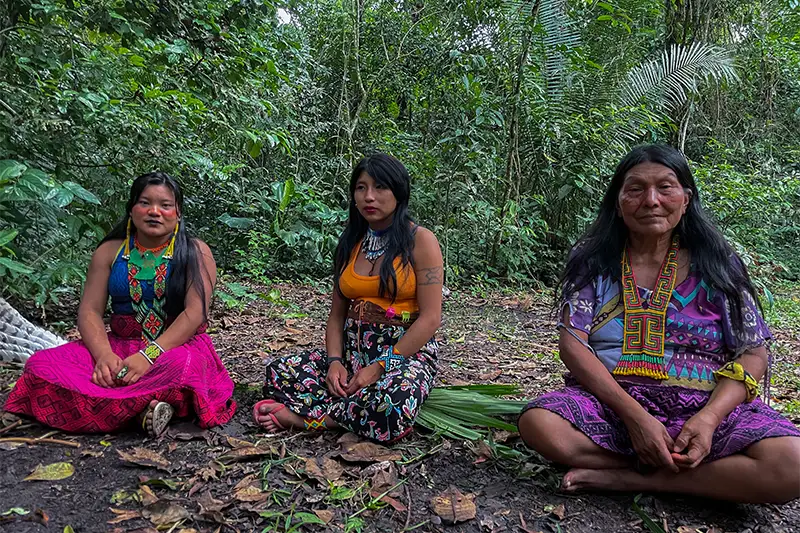
“The men, they have been well-organized with their associations to be involved in politics, but we haven’t had an organization or institution that would promote the ideas and interests of women,” says Rita. “Now, it’s already the 21st century and it’s time that the women have visibility.”
READ: Native Tribes Should Have More Say in the Psychedelic Movement

You can support the Huni Kuin women by making a donation at living-gaia.org. If you’d like the money to go directly to Ainbu Dayá, use the subject line “women.”
How to Grow Shrooms Bundle
Take Both of Our Courses and Save $90!
Interested in having a psychedelic experience, but don't know where to start? Get our definitive guide on trusted legal retreat centers, clinical trials, therapists, and more.
